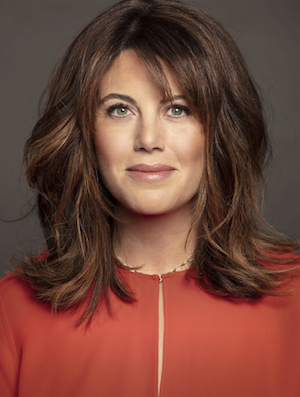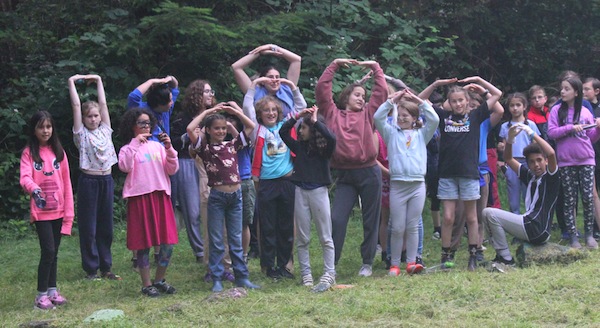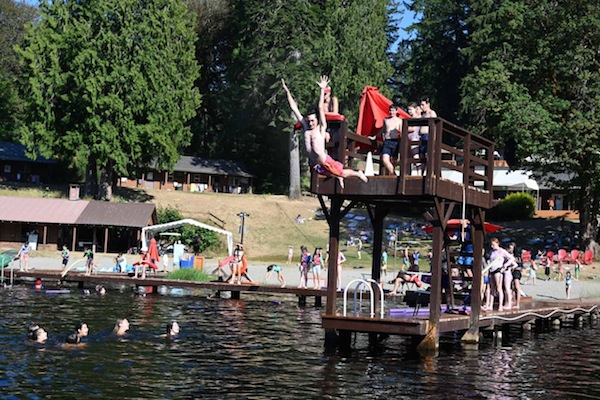Monica Lewinsky may have been the first person in history to experience international cyberbullying. Lewinsky was an intern in the White House during President Bill Clinton’s administration and her relationship with the U.S. president led to worldwide notoriety – contributing to the impeachment of the chief executive.
Lewinsky’s experiences took place before the dawn of social media, but her experience of being publicly judged and condemned was exacerbated by the then-new technology of the internet. Today, with almost every young person now on some form of social media platform, the potential for victimization or harassment exists everywhere.
The lessons of how decisions in early life can have long-lasting impacts – as well as considering how the #MeToo movement might invite a reconsideration of Lewinsky’s role in those events – are among the reasons Congregation Beth Israel will welcome Lewinsky to Vancouver for an evening that includes Selichot services Sept. 9.
“We were trying to think about someone who would be appropriate for Selichot, which is really the kickoff to the High Holiday season,” said Beth Israel’s Rabbi Jonathan Infeld. “We wanted someone who would be addressing key High Holiday concepts, such as personal renewal, dealing with personal choices made throughout one’s life, but especially at a young age, the effect of those choices on one’s life. Also, very à propos to today, someone who is still dealing with body image and life image, dealing with online harassment and dealing especially, again in the modern period, with gender power-related issues.”

Lewinsky has been speaking on these topics for several years. And this will not be her first time speaking about them to Vancouver audiences, as she did a TED Talk here in 2015, where she told the audience she was subjected to “global humiliation” by “mobs of virtual stone throwers.”
“In 1998, I lost my reputation and my dignity. I lost almost everything,” she said at the time. “I almost lost my life.”
Lewinsky’s presentation here is presented by RBC Global Assets Management PH&N Institutional in addition to Beth Israel, King David High School and Hillel.
Beth Israel invited King David and Hillel to participate because of the relevance to younger audiences of the issue of cyberbullying and how decisions and actions at a young age can change one’s life, said the rabbi. He noted that some younger people might not know of Lewinsky’s experience, while people his age recall it vividly.
Infeld dismissed the idea that Lewinsky’s visit might be controversial.
“Our goal is not to deal with the political issues,” he said. “Our goal is to deal with the personal growth and harassment and mental health issues. Obviously, everyone has their own view of the political issues involved, but the intention here is really not to deal with Democrats versus Republicans or anything like that but really to deal with how one’s experiences as a 20-something-year-old, and the decisions that a person makes at that point, can affect one’s life…. She speaks openly about suicide ideation at one point and how did she overcome that, how is she alive today, to be able to speak, and how does this affect our young people today, who are also making challenging decisions that affect their lives potentially forever, like we all did.”
Infeld also wonders how Lewinsky would have been portrayed, and how different the perceptions might have been, had the events taken place today, when the #MeToo movement and other social changes have given us a different perspective on workplace and gender power dynamics.
“Had this played out in the 2020s and not in the 1990s, what would the storyline look like?” he asked. “I think that may have changed in a very significant way – what the gender and power dynamic looks like in terms of how people would perceive who has responsibility for what took place.”
Tickets to the event were made available first to Beth Israel members, King David families and Hillel students. Tickets were opened to general audiences on Aug. 15. The 8:30 p.m. fireside chat between Infeld and Lewinsky is free and will be followed by musical Selichot services, led by Debby Fenson and Harley Rothstein. People who donate or pledge $90 or more to Beth Israel’s High Holidays campaign are invited to a 7 p.m. seudah shlishit dinner with Lewinsky. Selichot services will be livestreamed but Lewinsky’s presentation will not be. Information and tickets are available at bethisraelvan.ca.


